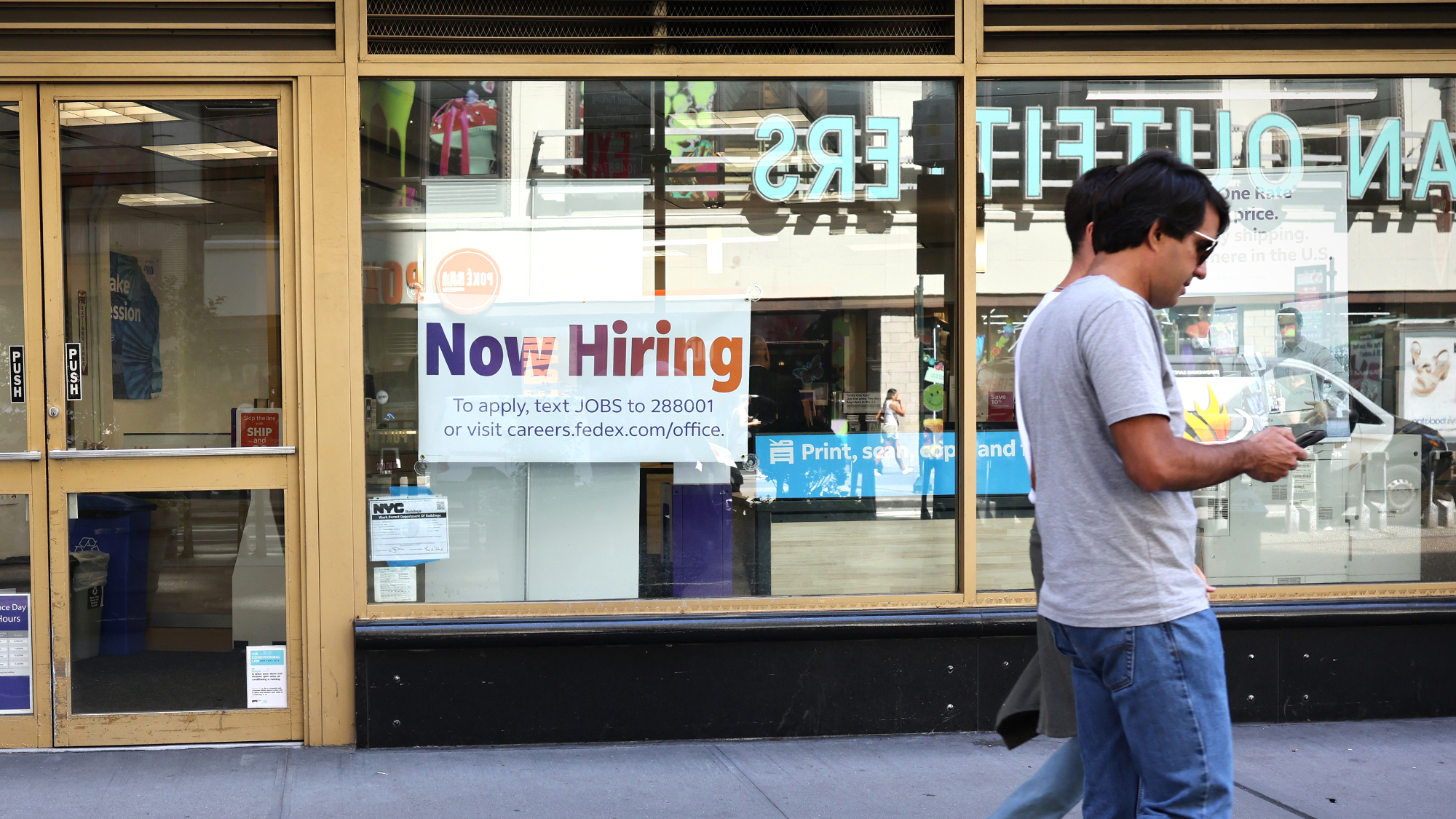Fitch warns of UK consumer debt bubble
Rating agency says British households are borrowing more than they are saving for first time since the 1980s

A free daily email with the biggest news stories of the day – and the best features from TheWeek.com
You are now subscribed
Your newsletter sign-up was successful
Credit rating agency Fitch has warned of the UK’s ballooning consumer debt bubble after new data revealed that British households are borrowing more money than they are saving for the first time since the 1980s.
A report by the agency found that, for the past nine months, households have been in deficit – storing up problems for the UK economy.
The Daily Telegraph says consumer spending has helped to support the economy in recent years, “but it has also left UK families with more debt than the average household faced three decades ago” at the time of the so-called ‘Lawson boom’ in the mid-1980s.
The Week
Escape your echo chamber. Get the facts behind the news, plus analysis from multiple perspectives.

Sign up for The Week's Free Newsletters
From our morning news briefing to a weekly Good News Newsletter, get the best of The Week delivered directly to your inbox.
From our morning news briefing to a weekly Good News Newsletter, get the best of The Week delivered directly to your inbox.
Named after then chancellor Nigel Lawson, the boom in the mid-1980s ended because of a combination of sharply rising interest rates and the turmoil from Britain’s exit from the Exchange Rate Mechanism which led to Black Friday in 1987.
As it did then, consumer debt is now rising nearly 10% a year, even though average earnings remain stick at 3%.
Brian Coulton, Fitch’s chief economist said this leaves the UK consumer “in a vulnerable position if we get any negative shocks”, with the surge in borrowing meaning debt is rising back to pre-financial crisis levels.
Fears about rising consumer debt along with sluggish GDP growth of just 0.01% in the first quarter of the year, have dimmed forecasts of a interest rate rise by the Bank of England this month.
A free daily email with the biggest news stories of the day – and the best features from TheWeek.com
-
 Health insurance: Premiums soar as ACA subsidies end
Health insurance: Premiums soar as ACA subsidies endFeature 1.4 million people have dropped coverage
-
 Anthropic: AI triggers the ‘SaaSpocalypse’
Anthropic: AI triggers the ‘SaaSpocalypse’Feature A grim reaper for software services?
-
 NIH director Bhattacharya tapped as acting CDC head
NIH director Bhattacharya tapped as acting CDC headSpeed Read Jay Bhattacharya, a critic of the CDC’s Covid-19 response, will now lead the Centers for Disease Control and Prevention
-
 The end for central bank independence?
The end for central bank independence?The Explainer Trump’s war on the US Federal Reserve comes at a moment of global weakening in central bank authority
-
 Can Nigel Farage and Reform balance the books?
Can Nigel Farage and Reform balance the books?Today's Big Question Nigel Farage has, for the first time, ‘articulated something resembling a fiscal rule’ that he hopes will win over voters and the markets
-
 Fed cuts interest rates a quarter point
Fed cuts interest rates a quarter pointSpeed Read ‘The cut suggests a broader shift toward concern about cracks forming in the job market’
-
 Why are Americans using 'buy now, pay later' apps to buy groceries?
Why are Americans using 'buy now, pay later' apps to buy groceries?Today's Big Question A 'layaway program, but reversed'
-
 How will Wall Street react to the Trump-Powell showdown?
How will Wall Street react to the Trump-Powell showdown?Today's Big Question 'Market turmoil' seems likely
-
 Will Rachel Reeves have to raise taxes again?
Will Rachel Reeves have to raise taxes again?Today's Big Question Rising gilt yields and higher debt interest sound warning that Chancellor may miss her Budget borrowing targets
-
 Fed cuts rates half a point, hinting victory on inflation
Fed cuts rates half a point, hinting victory on inflationSpeed Read This is the Fed's first cut in two years
-
 US job growth revised downward
US job growth revised downwardSpeed Read The US economy added 818,000 fewer jobs than first reported